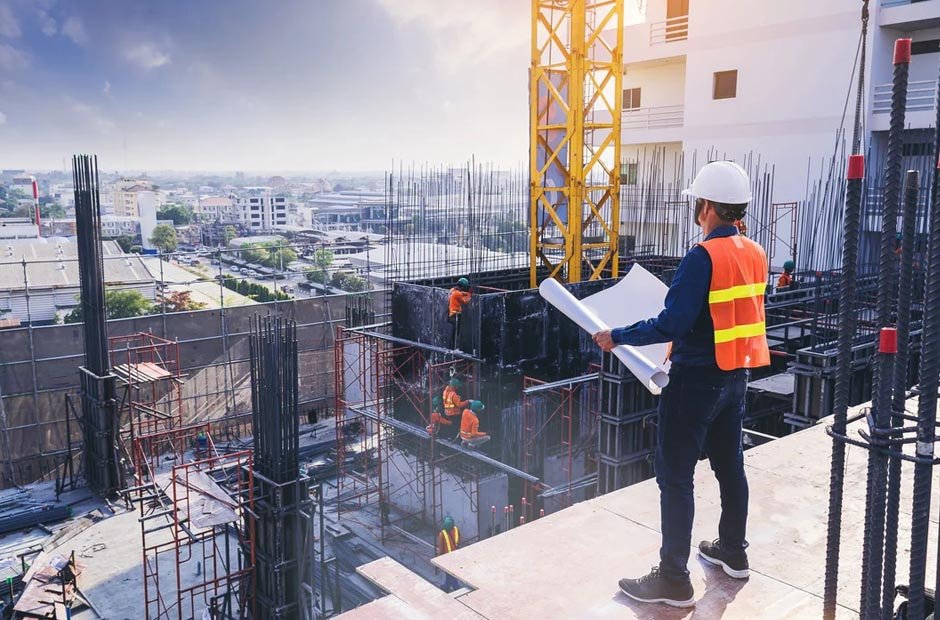In the grand tapestry of urban development and infrastructure, construction companies and exterior design services emerge as the architects of transformation, orchestrating the metamorphosis of our cities and landscapes. Their influence extends far beyond the mere erecting of buildings; it encompasses a broader vision of progress, innovation, and sustainability.
In an era marked by burgeoning populations, rapid urbanization, and environmental challenges, the role of construction companies has evolved to become more than just about bricks and mortar it’s about shaping a future that is both functional and harmonious with nature. Additionally, the meticulous selection of exterior finishes not only enhances the aesthetic appeal of a building but also plays a crucial role in protecting its structural integrity against the elements.
Introduction
The term construction companies encapsulates a diverse array of entities, ranging from small local firms to multinational corporations. These entities are responsible for the planning, design, and execution of construction projects, spanning from residential buildings to large-scale infrastructure developments. Their significance in the fabric of society cannot be overstated, as they are the driving force behind the physical manifestation of our collective aspirations and needs.
Innovations in Construction
At the heart of the construction industry lies a constant quest for innovation, driven by the imperative to build better, faster, and more sustainable. Technological advancements have revolutionized the way construction projects are conceived and executed. Building Information Modeling (BIM), for instance, allows for the creation of digital representations of physical spaces, enabling architects, engineers, and contractors to collaborate seamlessly and anticipate potential challenges before they arise.
Furthermore, the integration of advanced robotics and automation has streamlined construction processes, leading to increased efficiency and precision. Robotic arms can now be found on construction sites, performing tasks such as bricklaying and concrete pouring with unparalleled accuracy. This not only accelerates project timelines but also reduces labor costs and minimizes the risk of human error.
Sustainability has become a cornerstone of modern construction practices, driven by growing awareness of environmental issues and the imperative to reduce carbon emissions. Construction companies are increasingly adopting green building standards and practices, such as the use of recycled materials, energy-efficient designs, and renewable energy sources. Modular construction techniques, which involve the prefabrication of building components in controlled factory environments, offer a sustainable alternative to traditional construction methods, reducing waste and minimizing environmental impact.
Impact on Urban Landscapes
Construction companies wield significant influence in shaping the urban landscapes that define our modern existence. From the towering skyscrapers of global metropolises to the quaint neighborhoods of suburban communities, every structure tells a story of human ingenuity and ambition. But beyond the aesthetic appeal, construction projects play a crucial role in revitalizing city centers, breathing new life into neglected areas, and creating vibrant hubs of activity.
One of the key challenges facing modern cities is the need for sustainable development. Construction companies are at the forefront of this endeavor, employing innovative design strategies and technologies to create environmentally friendly buildings and infrastructure. Green roofs, for example, help mitigate the urban heat island effect and reduce energy consumption, while rainwater harvesting systems conserve water resources and promote biodiversity.
Moreover, construction projects have the power to address pressing social issues, such as urban housing affordability and accessibility. By embracing inclusive design principles and collaborating with local communities, construction companies can create housing solutions that meet the diverse needs of residents, from affordable apartments to accessible public spaces. Through mixed-use developments and transit-oriented design, they can also promote walkability, reduce car dependency, and foster a sense of belonging and community.
Environmental Considerations
In an era of increasing environmental awareness, construction companies are under pressure to minimize their ecological footprint and embrace sustainable practices. The construction industry is a significant contributor to greenhouse gas emissions, energy consumption, and resource depletion, making it imperative for companies to adopt more environmentally friendly approaches.
One of the key strategies employed by construction companies to reduce their environmental impact is the use of green building materials and technologies. These materials are sourced from renewable or recycled sources and are designed to be more energy-efficient, durable, and less harmful to the environment than traditional materials. For example, recycled steel and reclaimed wood can be used in place of virgin materials, reducing the demand for raw resources and diverting waste from landfills.
Additionally, construction companies are increasingly incorporating energy-efficient design principles into their projects, such as passive solar heating, natural ventilation, and high-performance insulation. These strategies not only reduce energy consumption and greenhouse gas emissions but also improve indoor comfort and air quality for building occupants. Moreover, the implementation of sustainable construction practices, such as construction waste management and water recycling, further minimizes environmental impact and conserves natural resources.
Economic Influence
The economic impact of construction companies extends far beyond the confines of individual projects, shaping the broader landscape of regional economies and global markets. Construction projects are significant drivers of economic growth, providing employment opportunities, stimulating demand for goods and services, and attracting investment capital. From skilled laborers and engineers to suppliers and contractors, construction projects create jobs and generate income for countless individuals and businesses across various sectors.
Moreover, construction projects play a crucial role in infrastructure development, laying the foundation for future growth and prosperity. Roads, bridges, airports, and public transportation systems are essential components of modern societies, facilitating commerce, mobility, and connectivity. By investing in infrastructure projects, governments and private entities can unlock new economic opportunities, improve quality of life, and enhance competitiveness on the global stage.
Social Responsibility
In addition to their economic and environmental contributions, construction companies have a profound responsibility to the communities in which they operate. As stewards of the built environment, they must prioritize the safety, well-being, and inclusivity of all stakeholders, from workers and residents to local businesses and governments.
Ensuring the safety of construction workers is paramount, given the inherently hazardous nature of construction sites. Construction companies must adhere to strict safety regulations and protocols to prevent accidents and injuries, providing workers with proper training, protective equipment, and support services. By prioritizing safety, construction companies can create a culture of care and accountability, fostering trust and loyalty among employees and stakeholders.
Furthermore, construction projects have the potential to positively impact communities through social and economic development initiatives. By partnering with local organizations, governments, and nonprofits, construction companies can support community-based programs, such as job training, education, and affordable housing. By investing in the well-being of residents, construction companies can build stronger, more resilient communities that thrive for generations to come.
Conclusion
In conclusion, construction companies play a vital role in shaping the world we live in, from the towering skyscrapers of our cities to the humble homes of our neighborhoods. Through innovation, sustainability, and social responsibility, they navigate the complexities of modern urban development, leaving an indelible mark on the fabric of society and the environment. As we look to the future, the role of construction companies will only grow in significance, as they continue to forge paths towards a more equitable, resilient, and sustainable world.








